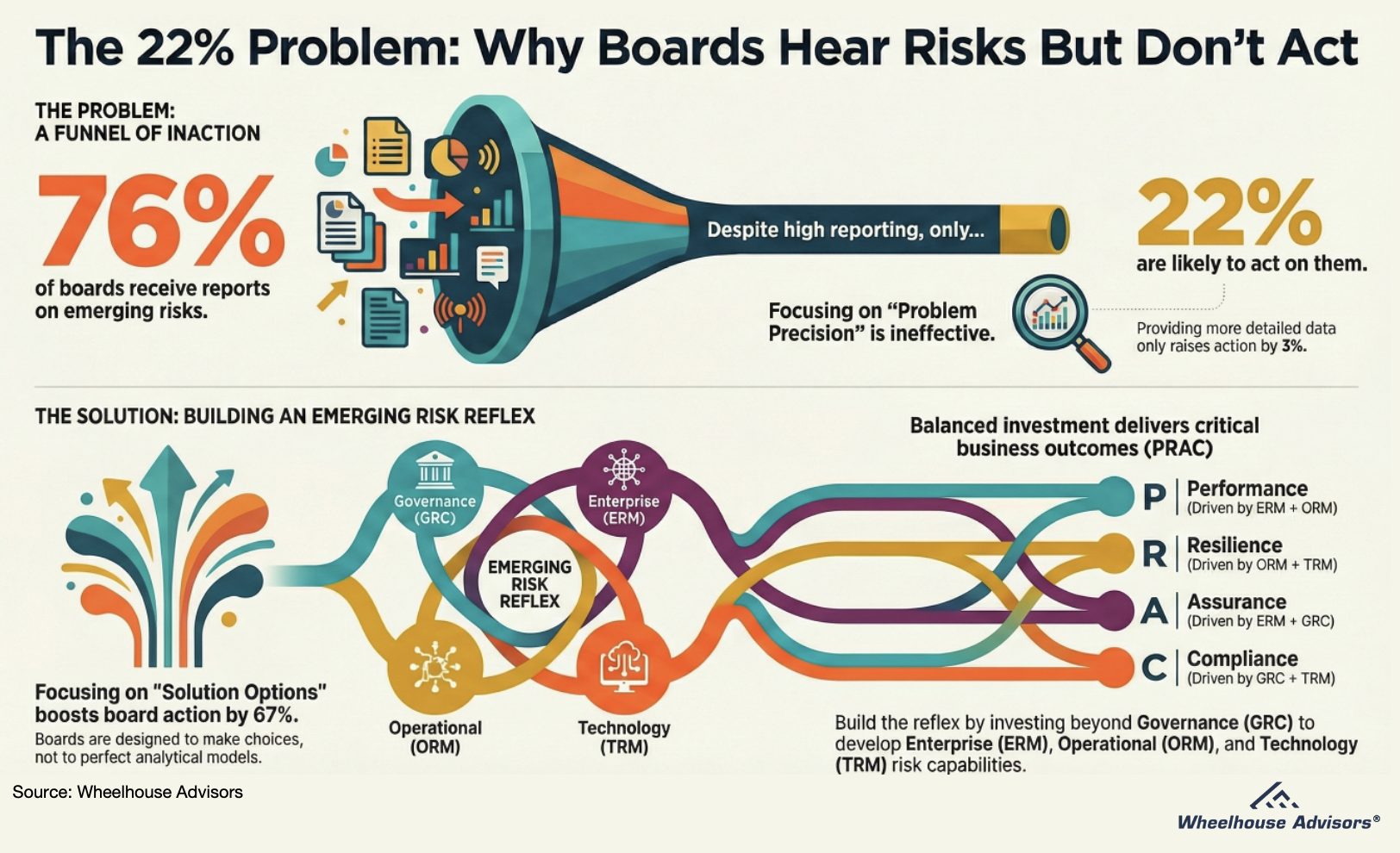
The RTJ Bridge is the new premium version of The RiskTech Journal, delivering fast-moving, strategically relevant insights for risk leaders navigating today’s digital business landscape.
Designed as the link between editorial commentary and in-depth research, The RTJ Bridge offers exclusive access to:
High-frequency insight notes on market shifts, regulatory signals, and emerging technologies
Executive briefings and editorial series including “The Risk Ignored”
Strategic previews of IRM Navigator™ research, including upcoming Risk Landscape Reports
Whether you're monitoring vendor moves, tracking governance shifts, or preparing for regulatory disruption, The RTJ Bridge equips you with actionable foresight.
The RTJ Bridge - The Premium Version of The RiskTech Journal
Subscribe to get access now
The RTJ Bridge Subscription is a premier resource for executives and professionals focused on the intersection of risk management and technology. It provides subscribers with access to a curated collection of articles and expert insights designed to enhance risk management strategies through technological innovation. With its online format, The RTJ Bridge offers flexible access to critical information, helping leaders make informed decisions and stay competitive.

The 22 Percent Problem: Why Boards Hear the Risks but Still Do Nothing
If your board is hearing more emerging risks than ever and still doing almost nothing, you are not alone. Gartner data shows seventy-six percent of boards receive emerging risk reports, but only twenty-two percent are likely to act on what they hear. This IRM Navigator™ research note explains why that gap exists and how GRC-centric investment quietly builds oversight while starving your organization of reflex. If you are tired of “noted” being the only outcome, this is the playbook for turning emerging risk insight into action.

When Culture Becomes a Control — How Supervisors Are Shaping the Future of Operational Risk
In regulatory circles, culture is no longer an abstract concept. It’s a measurable, reportable, and enforceable risk factor—viewed not as a soft HR issue, but as a core element of operational control. Across Australia, Europe, the UK, and the United States, financial and non-financial regulators are making it clear: the management of culture and conduct is now fundamental to operational risk oversight.
This shift is transforming the way Operational Risk Management (ORM) functions are being evaluated. Regulators are demanding not only documentation of controls but evidence that organizations understand how risk culture shapes operational performance, compliance behavior, and escalation pathways. In response, forward-looking ORM programs are moving beyond control testing and loss event tracking. They are building integrated risk intelligence systems that can monitor, measure, and adapt to the human dynamics of risk.

Culture as Capital Risk — Lessons from the ANZ Breakdown
Now that intangible risks are becoming materially consequential, few cases better illustrate the price of cultural failure than the one unfolding at ANZ. In March 2025, the Australian Prudential Regulation Authority (APRA) imposed a $1 billion capital charge on the bank, citing persistent governance failures and an organizational culture that allowed misconduct to fester unchecked.
This was not a case of financial fraud or a high-profile cyber breach. It was the slow erosion of internal accountability—fueled by poor leadership, ineffective escalation channels, and a widespread underestimation of non-financial risks. As APRA Chair John Lonsdale put it, ANZ’s problems were “persistent and prevalent,” with echoes of similar issues already observed at its peer institutions.
The implications extend far beyond Australia’s banking sector. The ANZ case is a clear signal to global risk leaders: organizational culture is now a capital issue.

